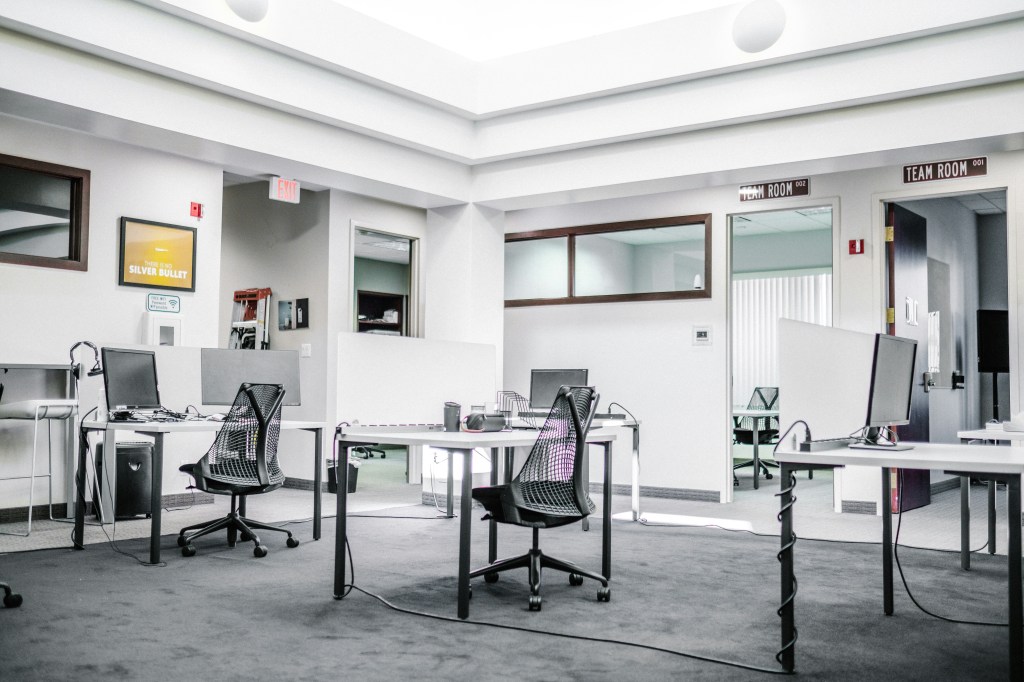Bringing Your Private Office Inventory to Your Prospects – Get Online or Get Left Behind
In a rapidly evolving digital landscape where technology drives consumer expectations, businesses must embrace innovation and agility to stay competitive and relevant. The coworking and flexible office space market is no exception. Historically, renting an office was a process that involved extensive in-person interactions—tours, negotiations and contract reviews. Meanwhile, the convenience of online transactions has been reserved for virtual offices or short-term bookings. As the coworking industry continues to grow, with an estimated market size projected to reach $13.03 billion globally by 2025, businesses that fail to offer seamless online solutions, like transactions, inventory and booking, to name a few, risk losing out to competitors.
Breaking Barriers: Fully Transacting Online
The idea of bringing private office inventory online may feel unconventional, but it’s becoming a necessity. Modern consumers value efficiency and convenience, expecting the ability to book services with the click of a button. Yet, there are inherent challenges in convincing customers to make significant purchasing decisions, like leasing a private office, without in-person interaction. Overcoming these barriers requires removing friction and instilling confidence in prospects.

To build trust, platforms should offer clear, high-quality visuals, detailed pricing and terms upfront. Virtual tours can replicate the experience of walking through an office, allowing prospects to assess the space remotely. Additionally, a fully digitized contract process—avoiding checkbox-style checkouts for complete, legally binding agreements—provides a sense of security and professionalism.
Learning from the Residential Market
The coworking industry can draw valuable lessons from the residential real estate sector, which has seen significant success with online transactions. Prospective tenants routinely browse online platforms, assess properties through photos and virtual tours and sign rental agreements digitally. By adopting similar strategies, coworking operators can provide the same level of confidence and transparency to potential members.
Residential platforms thrive on providing potential renters with the tools they need to make informed decisions. This includes showcasing clear, high-resolution photos and offering detailed descriptions of the property, from amenities to square footage. The same principles can be applied to private office inventory. Potential clients should feel as though they’ve already “seen” the space before they visit—or better yet, feel confident enough to transact without visiting at all.

Benefits for Prospects and Operators
For prospects, the ability to research, tour and sign contracts online eliminates time-consuming hurdles. It allows them to compare options at their convenience, without the pressure of in-person sales tactics. For operators, bringing private office inventory online expands the reach to a larger audience, streamlines operations and reduces the reliance on sales staff for routine tasks.
Yardi Edge: Leading the Charge
Industry experts like Yardi are paving the way for this shift, empowering coworking spaces with technology solutions that simplify online transactions. Yardi’s platforms, like CoworkingCafé, integrate tools for managing inventory, providing real-time availability and enabling virtual tours—all of which enhance the customer experience.
The Time to Act Is Now
In the rapidly evolving coworking market, waiting to embrace online transactions is no longer an option. Operators must prioritize transparency, convenience and confidence to attract modern consumers. From clear photos and virtual tours to fully executed contracts, bringing private office inventory online is not just an innovation, but rather a necessity to stay competitive.
Get online, remove barriers and open your doors to a world of new opportunities—before the competition leaves you behind. Find out more about how Yardi Kube and CoworkingCafé can help by scheduling a demo below.
